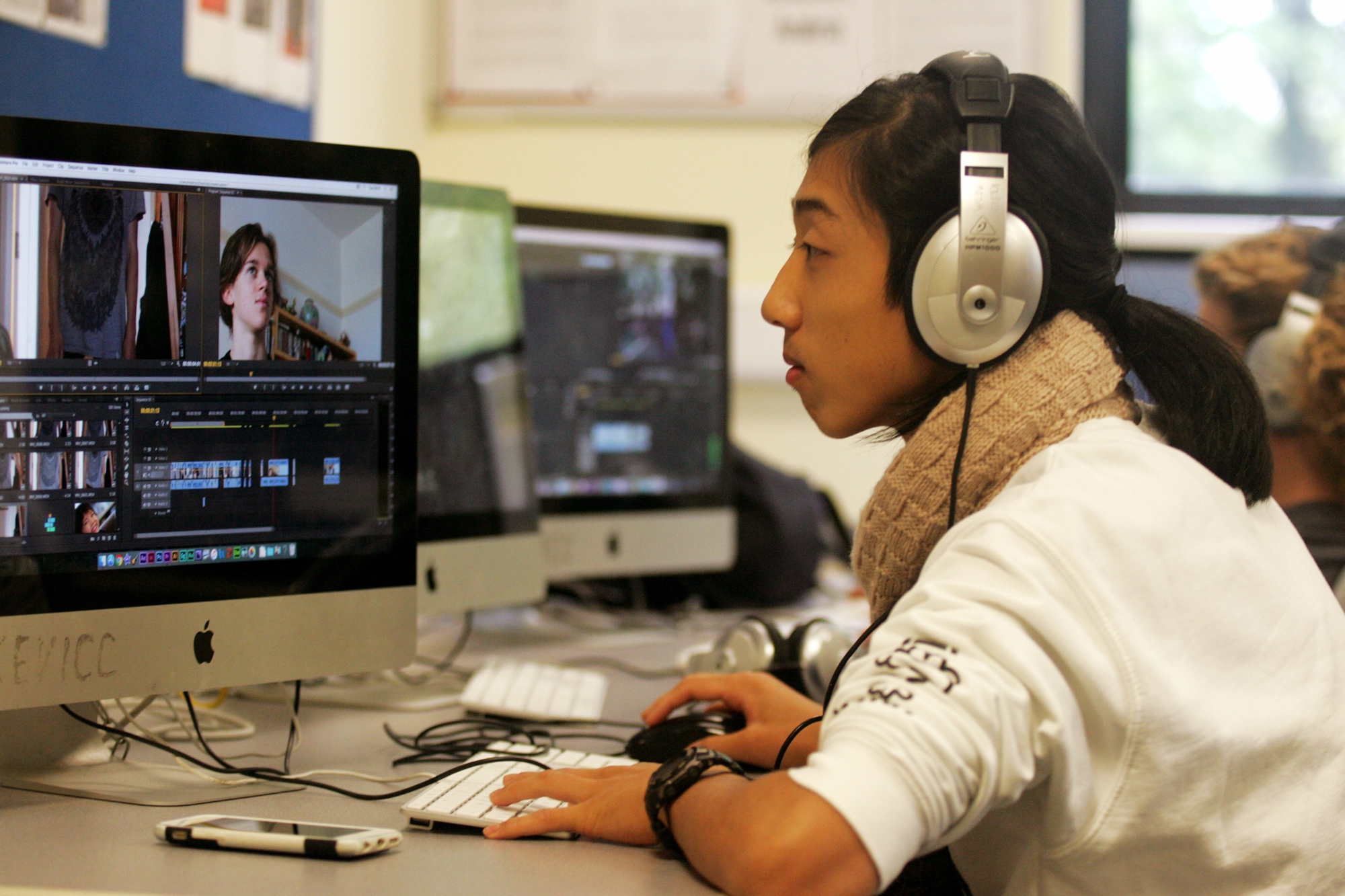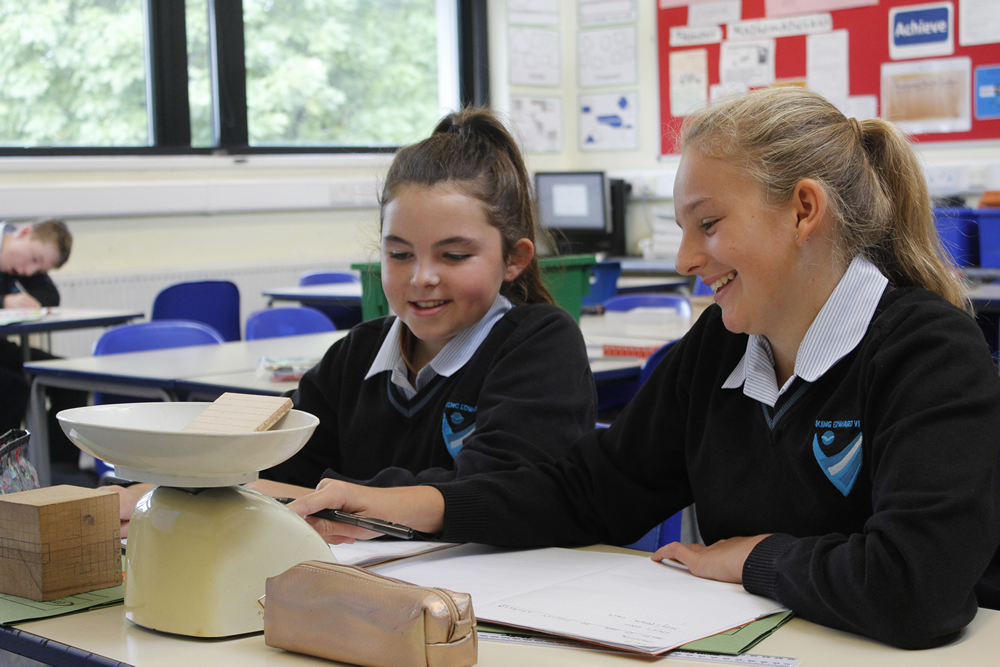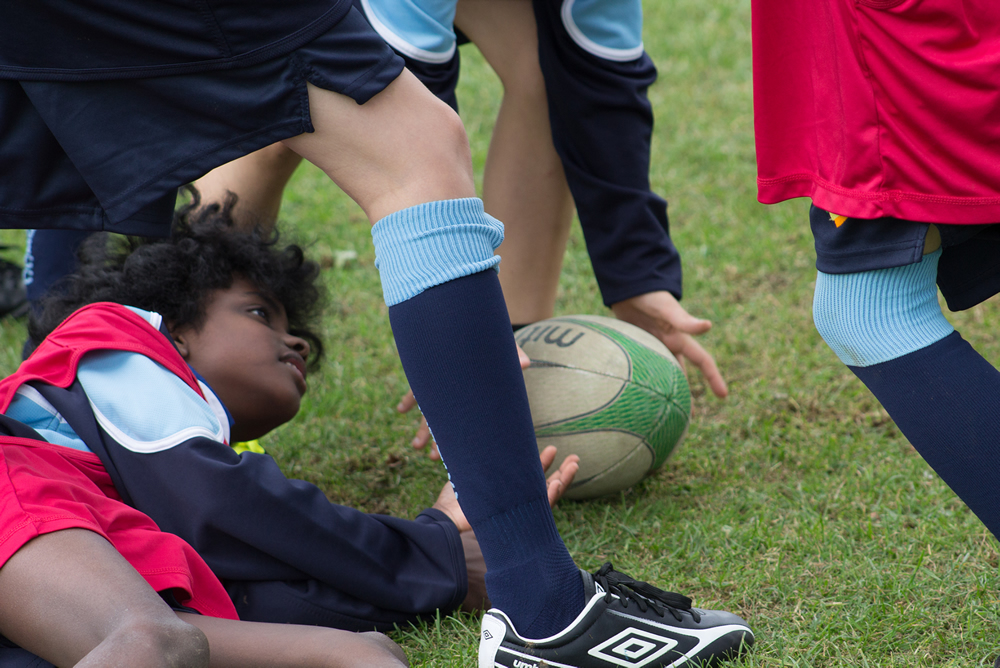Key Stage 4
Science - Compulsory Courses
GCSE Triple Science - Exam Board AQA
Assessment Structure
100% Examination
Topics Studied
- BIOLOGY: Cell Biology and Organisation, Energy in Organisms, Infections and Response, Controlling the Internal Environment, Ecology and Inheritance and Evolution.
- CHEMISTRY: Atomic Structures, Bonding and Matter, Resources (Earth, Water and Atmosphere), Measuring Chemical Reactions, Analysing Chemicals, Chemical Changes, Reactivity, Chemistry in Industry and Using Resources.
- PHYSICS: Magnetism, Energy, Forces, Electricity, Waves, Atoms and Matter.
What’s Assessed
For all papers, content from any part of the specification may be assessed.
Why take this course?
Across Years 10 and 11 students follow a programme that covers topics in Biology, Chemistry and Physics. The extension topics mix some new material along with Combined GCSE material covered in greater depth. The new qualification has compulsory practical work in the course that is examined during the terminal assessments at the end of Year 11.
In the final assessments each subject’s course content is split into 2 topics and there is a 1hr 45min examination of each topic. This means that triple science students take 6 examinations at the end of Year 11.
Where could it lead?
Post 16
Biology, Chemistry and Physics and Applied Science L3 Science at Kennicott,
Post 18
There are a wide variety of Higher Education Courses in the Sciences, including at Russell Group Universities.
Career
There are many career opportunities in the field of science and technology, ranging through health and medical, research and development, conservation, engineering, teaching and industrial applications.
Contact
Dr. S Ruffle - Science and Technology Faculty Leader
GCSE Core and Additional Science - Exam Board AQA
Assessment Structure
100% Examination
Topics Studied
- BIOLOGY: Cell Biology and Organisation, Energy in Organisms, Infections and Response, Controlling the Internal Environment, Ecology and Inheritance and Evolution.
- CHEMISTRY: Atomic Structures, Bonding and Matter, Resources (Earth, Water and Atmosphere), Measuring Chemical Reactions, Analysing Chemicals, Chemical Changes, Reactivity, Chemistry in Industry and Using Resources.
- PHYSICS: Magnetism, Energy, Forces, Electricity, Waves, Atoms and Matter.
What’s Assessed
For all papers, content from any part of the specification may be assessed.
Why take this course?
The GCSE is suitable for students of all abilities and the course encourages students to understand theoretical concepts alongside developing practical Science skills.
We follow the AQA Science GCSE course combining all three Sciences; Biology, Chemistry and Physics. Students on KS3 Science, Maths and English grades of 6.5 and above study Triple level, and all other students study 2 GCSEs.
The course is designed to give you more detail on the breadth of content that has already been introduced in KS3 as well as introducing new material. The programme sets out to try to give you an understanding of the world around you as well as develop your thinking skills in analysis and using evidence; your mathematical skills by applying them to real experiments and your literacy skills in describing and explaining the science that has been studied.
The Combined GCSE course
Across Years 10 and 11 students follow a programme that covers topics in Biology, Chemistry and Physics. The new qualification has compulsory practical work in the course that is examined during the terminal assessments at the end of Year 11. In the final assessments the course content is split into 6 topics (2 for each of the subject disciplines) and there is a 1hr 15min examination of each topic.
Students will get 2 combined science GCSE grades.
Where could it lead?
Post 16
Biology, Chemistry and Physics and Applied Science Level 3 Science at Kennicott,
Post 18
There are a wide variety of Higher Education Courses in the Sciences, including at Russell Group Universities.
Career
There are many career opportunities in the field of science and technology, ranging through health and medical, research and development, conservation, engineering, teaching and industrial applications.
Contact
Dr. S Ruffle
Science - Optional Courses
Level 1 and Level 2 Hospitality and Catering - Exam Board WJEC
Assessment Structure
- Unit 1 - External Online Assessment; internal written assessment
- Unit 2 - Internal written assessment
Topics Studied
- Develop knowledge and understanding of the catering and hospitality industry - including elements of business management, business strategy, the legal requirements around the industry and health and safety. Key questions include:- What job opportunities are there in the industry? How can food poisoning be prevented? What laws need to be considered when providing hospitality and catering? How do providers meet customers' needs? When opening a new outlet what factors need to be considered?
- Plan, prepare, cook and present nutritional dishes - including ingredient selection, cooking methods, hygiene, menus and combinations and presentation - Key questions include:- Why should we follow storage recommendations on food products? Why do chefs need to consider the nutritional needs of their clients? Why are temperature probes used in the catering industry?
Why take this course?
- This course has a balance of practical and theory around the catering and hospitality industry. It will include visits to and visits by local businesses and business people who work in the catering and hospitality industry.
- Assessment happens across the course and there is no GCSE style examination at the end of year 11.
Where could it lead?
Post 16
- As an accredited course it counts towards your portfolio of qualifications that will be part of the entry requirements for a variety of Post - 16 courses.
- It is likely to be highly valued by businesses and institutions that offer Apprenticeships in the Hospitality and Catering industry.
Post 18
This qualification also supports learners to develop the essential employability skills that are valued by employers, further and higher education.
Career
According to the British Hospitality Association, hospitality and catering is Britain's fourth largest industry and accounts for around 10% of the total workforce. This includes restaurants, hotels, pubs and bars. It also includes airlines, tourist attractions, hospitals and sports venues; businesses where hospitality and catering is not their primary service but is increasingly important to their success.
Contact
Mrs C Parker
GCSE Product Design - Exam Board AQA
Assessment Structure
- 50% Examination
- 50% Controlled Assessment
Topics Studied
Unit 1 Examination
The examination tests you on your understanding of all the topics covered during the course and your ability to design in a time situation. Questions are of a mixture of multiple choice, short response, extended response and design tasks.
Unit 2 Controlled Assessment
The AQA exam board set the theme for each year’s task. Students are able to develop highly personalised responses to these. The project is completed in and out of class time to allow for a more realistic simulation of design and making practice. There is the opportunity to attend additional sessions after school to gain extra support with Controlled Assessments and to help develop your skills and this has meant that students’ results exceed their targets.



Why take this course?
Product Design is an exciting, dynamic and creative design specialism, which gives you the chance to work on projects individually and in teams. The course is centred on designing and developing products in any material in the workshops and design studios. There is a strong emphasis on learning through practical work, reinforced by theoretical studies.
Where could it lead?
Post 16
‘A’ Level Product Design is the natural progression route for students at Kennicott. However, students can now also study the Btec Art and Design if they have studied Art at GCSE. At Post 16 level we now have a partnership agreement with Falmouth University who ensure any student who is predicted a ‘B’ grade or above will automatically receive an interview. This is the only agreement of this kind in the county.
Post 18
Many of our Product Design students further their studies in the Product Design related courses across the country. The degrees they follow may be Product Design Engineering (Bsc) or other product design courses that award BA(Hons). Other students have chosen to follow courses in sustainable design, education, interior design, engineering and architecture.
Career
Students who have completed the course have gone on to study product design, interior design, jewellery design, furniture design, architecture, engineering, exhibition design and model making. Many ex-students now work in product design companies nationally and attend some of the best educational design universities in the country including the Royal College, Brunel University, Bristol and Falmouth.
Contact
Mr. D Irish





